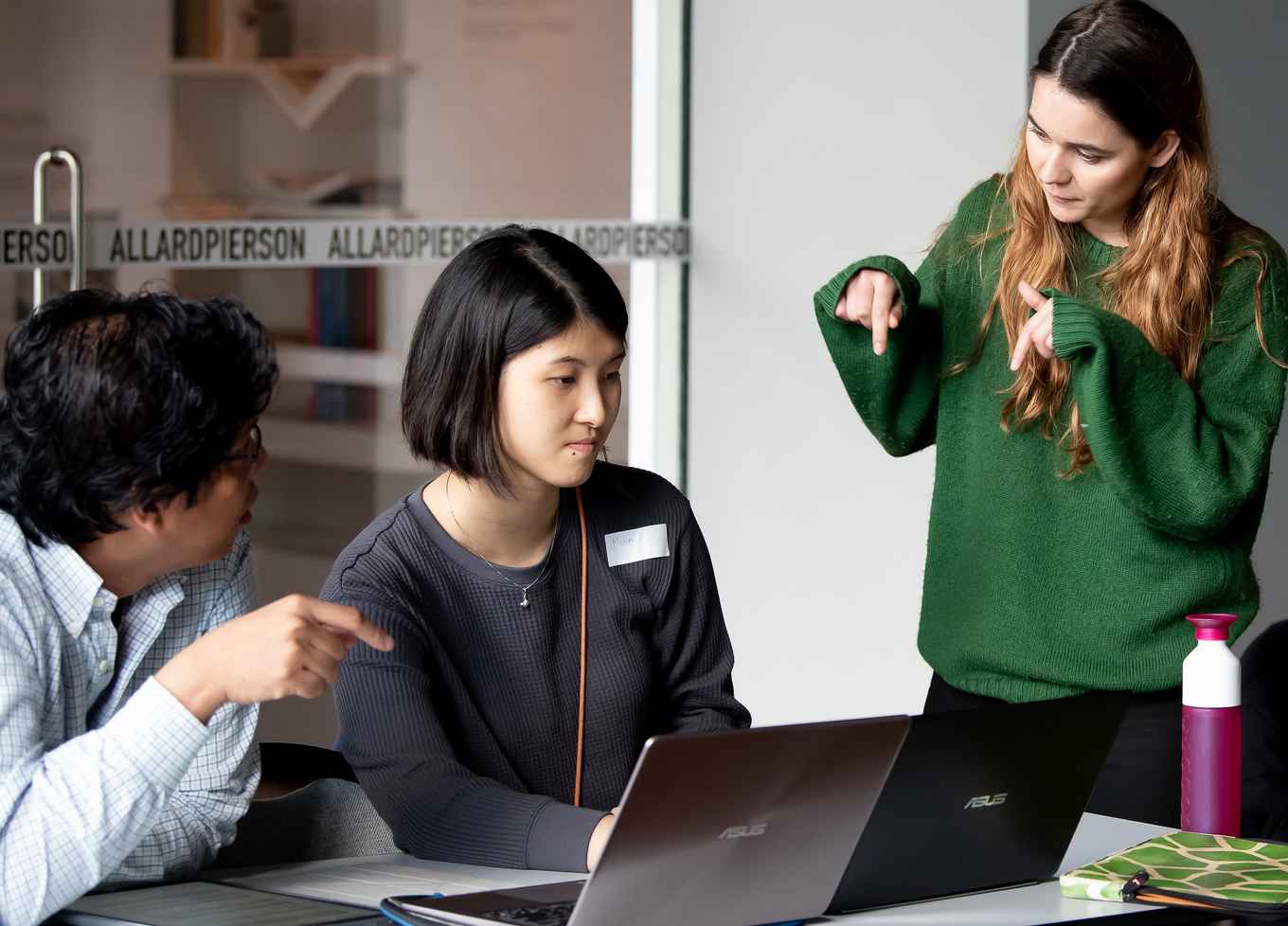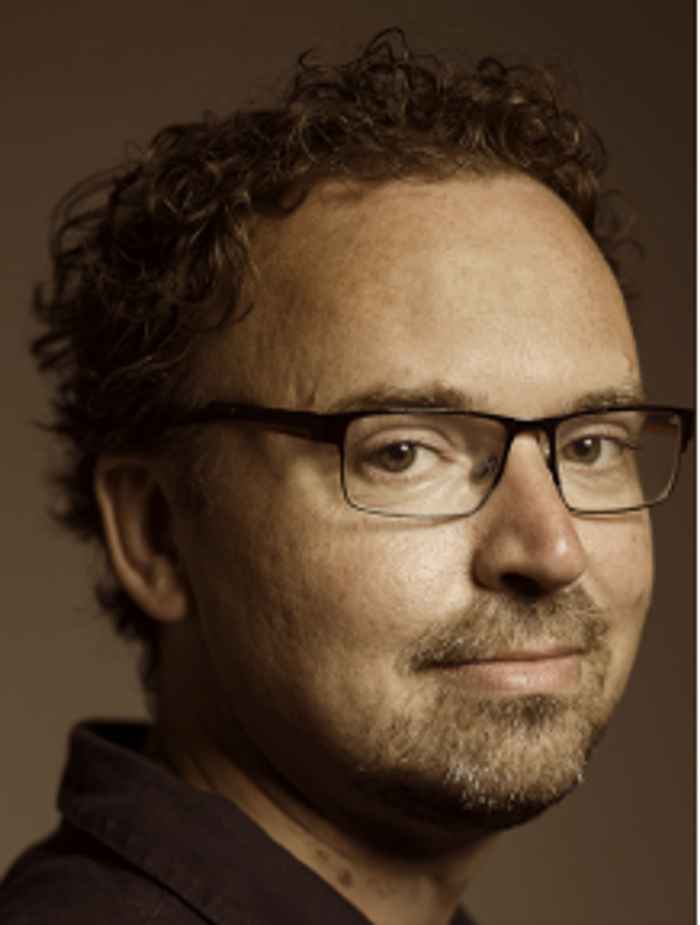Data Science Day 2022: Afternoon programme
In collaboration with the Social and Behavioural Data Science Centre (SoBe DSC)
- Date
- 13 October 2022
- Time
- 13:00 -17:00

The University of Amsterdam Data Science Centre, part of the University Library, is pleased to host the second Data Science Day. After the morning programme consisting of workshops for UvA data scientists, the afternoon programme invites everyone to join in on a series of pitches and keynote presentations spanning a variety of data science topics.
Afternoon programme: Pitch presentations and keynotes
Time: 13:00 – 17:00, followed by networking and drinks at 17:00 – 18:30
Location: Startup Village, Amsterdam Science Park 608
(Not able to attend in person? You can also register for the online live stream!)
Registration details: Registration is free of charge and everyone is welcome to join the afternoon programme.
Programme
| 13:00 | Doors open & registrations |
| 13:30 |
Welcome to the UvA Data Science Day |
| 13:35 |
DSC pitch presentations |
| 14:30 | UvA data science eco-system pitches Introduction to other data science networks that the Data Science Centre collaborates and partners with. |
| 14:55 | Coffee break & networking |
| 15:30 |
SoBe DSC introduction |
| 15:35 |
Keynote |
| 16:15 |
Keynote Who does this interface think you are? by Anne Beaulieu, Professor of Knowledge Infrastructures and Director of the Data Research Centre at the University of Groningen |
| 16:55 |
Closing remarks by Paul Groth, Scientific Director of the DSC |
| 17:00 |
Networking drinks |
| 18:30 |
End |

Keynote 1: Dr. Steven Scholte
Fantastic Dnimals and where to find them: Understanding deep learning models of perception
The visual world is complex but well structured. Models capable of dealing with this structure and capable of, for instance, recognizing objects have millions of free parameters. It has been suggested that such models are akin to black boxes that cannot be understood.
In this talk I will argue that such models can be treated in a way similar to biological animals (such as humans). Not only can these artificial animals be probed in a similar fashion as biological animals, they have many advantages over them as subjects of research.
I will give examples of this approach that will illustrate it is possible to obtain a good level of understanding of these high parameter models that are optimised for predicting object categories. This helps us to, at the same time, understand the functions implemented in DNNs and the mechanisms used by biological animals to solve these tasks.
Steven Scholte
Dr. H. Steven Scholte studied biology and psychology and has a PhD in medical physics. He is an Associate Professor at the University of Amsterdam specialised in relating neuro-imaging data, and computational models to human behaviour. His field of research is visual perception, and he works on the problem of how 2D point-sampled visual information is integrated into a meaningful percept. His research covers topics such as grouping, segmentation and object recognition.

Keynote 2: Prof. Dr. Anne Beaulieu
Who does this interface think you are?
When working with data as researchers, we tend to treat interfaces as functional elements that provide access to our object of study. In this talk, I will explore what happens when we slow down and explore the interface as an important space of action that shapes what we do, as well as how and what we know with data. In other words, I will present what it means to approach interfaces as practices rather than as devices (objects or technologies). These insights will set up the second part of the talk, which will address how interfaces have the potential to shape relations between humans, machines and more-than-humans, and to sustain new civic epistemologies, beyond control and calculation. Finally, I will raise questions about what it would mean to do data science with interfaces that can sustain ambiguity, complexity, exploration and multiplicity, as values that are crucial for knowledge in the Anthropocene.
Anne Beaulieu
Prof. Anne Beaulieu holds the Aletta Jacobs Chair of Knowledge Infrastructures at the University of Groningen, The Netherlands. Her research and teaching provide insights into how data is created, synthesized and transformed into evidence. She also studies how databases, platforms and data flows shape what we know and who has access to this knowledge. She has led the development of many lines of research and teaching, among others at University College Fryslân, in the Minor Data Wise and as scientific coordinator of PhD training of the Netherlands Graduate Research School of Science, Technology and Modern Culture (WTMC). She is also the co-author of the recently published book ‘Data and Society: A critical introduction’, which investigates the growing importance of data as a technological, social, economic and scientific resource.
Morning programme: Interactive Workshops (in-person only)
The morning programme consists of 2 interactive workshops, delivered in collaboration with SoBe DSC. Both workshops will be hosted in-person at Startup Village in the morning and are for UvA PhD students and employees only.
What people said about last year's Data Science Day

At the Data Science Day it became very clear how data science plays a prominent role in many different research areas. What I found striking is that although the topics were very different, we do speak the same kind of language. Data science is actually a shared framework within which we can tell and inspire each other about these studies. Precisely because different methods are used within different faculties and departments, there is a lot to learn from each other in this way. That interdisciplinary encounter with data science as a shared language was very inspiring!Dr Tessa Blanken, postdoctoral researcher Faculty of Social and Behavioural Sciences, Psychological Methods Programme Group
About SoBe DSC
The SoBe DSC is the social and behavioural sciences hub of the University of Amsterdam’s Data Science Centre. SoBe DSC includes the four domains of the Faculty of Social and Behavioural Sciences of the University of Amsterdam: Social Sciences, Psychology, Child Development and Education, and Communication Science. More information can be found on SoBe DSC’s website.
About Startup Village
Startup Village is a community of startups and network partners with focus on AI and Quantum, based on in the Amsterdam Science Park.
How the UvA Library supports data-driven research
The UvA Library supports data science by providing tailored and hands-on support to researchers and faculties. The Library assists with research data management, offers training sessions and funding opportunities related to digital and data-driven research, and provides access to the UvA content collections and databases.